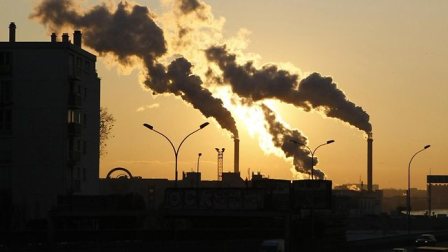words of wisdom? volume three: the environment

The federal election campaign is now officially under way, which means we’ve been plunged headlong into the black hole of empty slogans, tired clichés, insidious euphemisms, half truths, and complete lies. But, hey, at least we’re all in it together.
There’s nothing like an impending election to lower the tone of political language and to muddy the waters of clear and informative discourse (except maybe the Murdoch press, zing!). This column is dedicated to the twists and turns of phrase uttered by politicians on the campaign trail, as viewed through the thick lenses of Toby Newton’s specs.
*
Well done, everyone! We stopped climate change! The environment is slowly beginning to heal and human-caused pollution and carbon emissions are under control! Right? I’m sure that’s what happened. Rudd knows it. That’s why he’s promised to end the fixed carbon price a year earlier than planned. Abbott, the old greenie that he is, is so happy with how the planet’s doing that he’s going to celebrate by scrapping the carbon tax altogether. Hang on…
So apparently that’s not the reason both parties are desperate to end the carbon tax. To continue where I left off in my last article, it seems that environmental issues have been dragged under the suffocating net of neo-liberal economic thinking. This is particularly evident in relation to climate change and our efforts to slow its momentum. In recent years, politicians and economists, here and overseas, have led the discussion on climate change, proposing a variety of “market-based solutions” and weighing up the financial pros and cons of different courses of action or inaction. This shrouding of climate change in economic language leads to a situation where the context and intention (you know, trying not to kill the planet) are gradually divorced from the chosen method (a system where those killing the earth have to pay a little more).
As the focus of the national “conversation” is continuously sucked back into the vortex of the economy, the pressing need to reduce our destructive impact on our world is forgotten amid constant reminders of the “great big new tax”. What is of particular importance here is not whether the carbon tax is good or bad, but rather on what grounds that judgement is made. Instead of focusing on how best to slow climate change according to the needs of the environment around us, both parties are concerned primarily with reducing the cost and economic impact of whatever action we take. As a result, we have both parties committed to ending the fixed carbon levy, with Tony Abbott and Joe Hockey warning of the financial impact on various industries, including heavy transport and aviation in particular. Of course, there’s no acknowledgement that industries like these are huge emitters of carbon dioxide and thus exactly the kinds of industries that are intended to be targeted by carbon pricing.
It’s worth noting here that there seems to be a significant, and apparently incongruous, overlap of opponents to policies that will increase the costs of pollution and champions of the free market and private industry as a vital and adaptive force. We are told that capitalism’s beauty is in its essential simplicity and the effectiveness of market forces to encourage innovation, change, and improvements in efficiency and value in the face of shifting conditions. Implement one new policy, however, and all of a sudden capitalism is helpless, or so the politicians and economists would have you believe. Of course, this is not the case. No-one, not even Abbott, really believes the entire free market system will collapse as the result of reducing emissions. Business is already adapting, new markets and industries are emerging in green energy and those companies that stand to lose the most money are more aware than anyone of the need to change the way they do business.
Both Rudd and Abbott are looking to reduce the cost of climate action on businesses without offering any positive policies to otherwise reduce emissions. By way of example, the Melbourne-to-Sydney air route is the fifth busiest in the world by passenger numbers and yet neither major party has any plans whatsoever to initiate construction of a high-speed rail link between the two cities. Only at the behest of the Greens did Labor “commit” itself to a study into the project’s feasibility, a study that concluded that such a rail link would not be fully operational until 2065. In the meantime, Labor, as well as many of the leading ministers in the Coalition, supports the construction of a second airport in Sydney.

